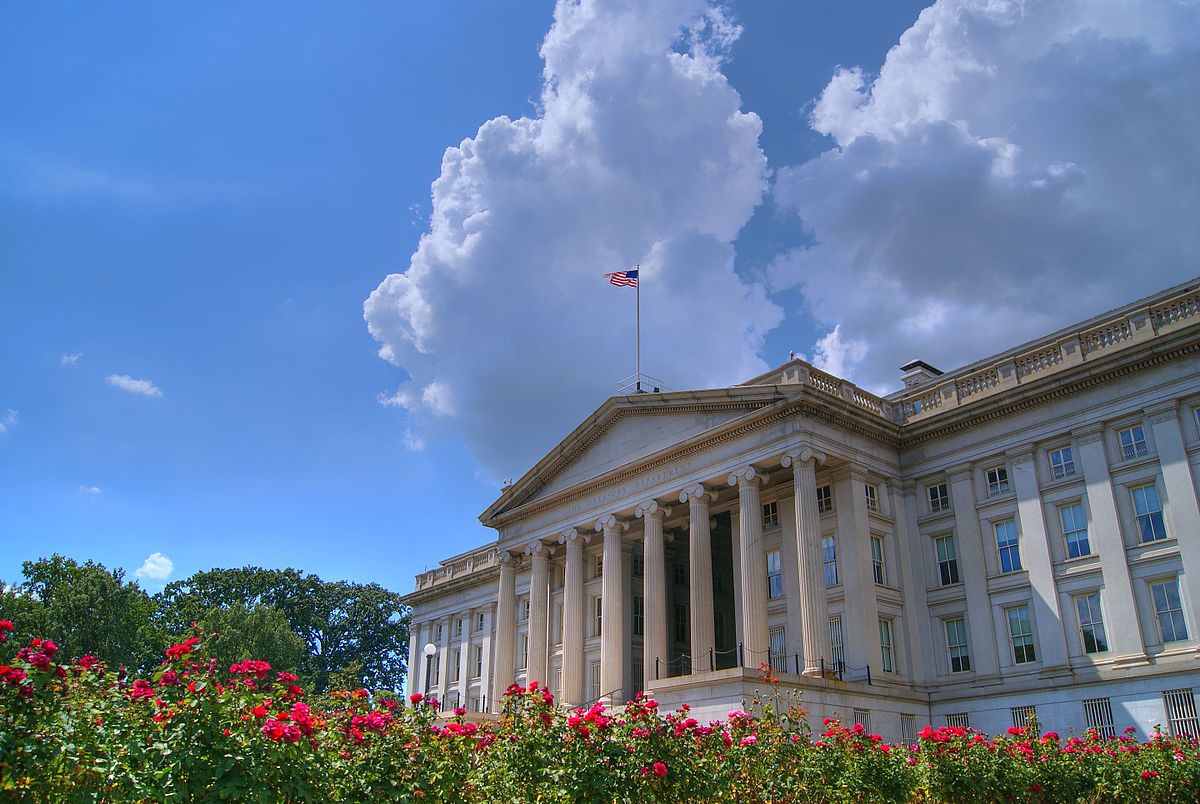Can the United States be trusted with its debt?

A view of the Treasury Building in Washington, D.C., 2012.
Jonah Carlson - Earlier this month, the United States hit its debt ceiling of $31.4 trillion dollars. While Jim Tankersley and Alan Rappeport focus primarily on the domestic repercussions of the problem, international repercussions are evident as well. What happens if the United States can’t pay its bills?
To understand the international importance of debt, we need to understand the importance of ideological power. The foundation of the international system today is based on the concepts of free market economics and responsible spending. The United States has upheld these values by never defaulting on its debts, a significant portion of which is held by trusting foreign investors. If Congress fails to agree to raise the debt ceiling and defaults on a portion of its debts, the effects could be disastrous on not only the U.S. economy but the international market as well. Fewer states would be willing to hold U.S. debt, weakening the dollar and thus the global reserve. As a result, U.S. ideological power would wane in realms outside of market economics. A failure to pay the government’s bills would call into question the U.S.’s ability to provide foreign aid, including the billions of dollars dedicated to arming the Ukrainian army over the course of the last year. The combination of these factors could undermine NATO unity, as well as the position of the U.S. in international forums like the World Trade Organization and International Monetary Fund. This would make the United States appear as a less reliable partner, both economically and militarily, weakening its ideological stance on the importance of free market principles, Western unity, and organized world order.
To better understand how the U.S. hitting its debt ceiling is important to geopolitics, one needs to understand networks. The global economic network is a set of nodes that connects economic centers across the entire globe. A significant hit to any individual node can create reverberations across the entire system. This has been observed previously with the 2007-2008 financial crisis, which was jumpstarted by a housing bubble in the American market.
Image source. Erich Robert Joli Weber, CC BY-SA 3.0, via Wikimedia Commons

